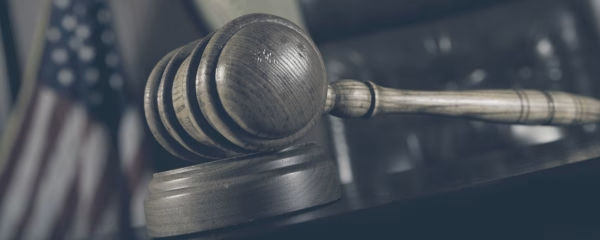
Right to Repair Lawsuit
June 2025 ruling clears the way for FTC and five states to pursue antitrust claims against agricultural equipment manufacturer over restricted repair software access.
In a major development for the growing right-to-repair movement, a federal court recently refused to dismiss a landmark right to repair lawsuit, signaling a significant step toward expanding consumer rights and curbing corporate control over essential repair tools. On June 9, 2025, the United States District Court for the Northern District of Illinois denied a motion to dismiss filed by a major manufacturer of agricultural equipment in the case FTC v. Deere & Co., No. 25-CV-50017 (N.D. Ill.).
The Federal Trade Commission (FTC) joined by attorneys general from Arizona, Illinois, Michigan, Minnesota, and Wisconsin, alleged that the Defendant unlawfully monopolized the repair market for its high-tech tractors by restricting access to its proprietary Service ADVISOR diagnostic software.
What Is the Right to Repair Lawsuit About?
The lawsuit centers on the manufacturer’s use of software-based locks and exclusive licensing agreements that limit who can perform repairs on its modern tractors, which rely heavily on electronic control units. These diagnostic systems can only be serviced using the Defendant’s own repair tool Service ADVISOR which it licenses only to Authorized Dealers. As a result, farmers and independent repair technicians are effectively shut out of performing timely and cost-effective repairs.
The FTC contends that this business model gives the Defendant monopoly power in two “single-brand” aftermarkets:
- Fully functional repair tools
- Restricted repair services
The lawsuit alleges that this control leads to inflated prices, reduced service options, and delays that could threaten crop yields and food supply chains.
Why the Court’s Decision Matters
The Defendant argued the lawsuit should be dismissed, claiming:
- Consumers were aware of the repair limitations when they bought the equipment.
- The company doesn’t perform repairs directly; only its independently owned dealers do.
- Therefore, it could not be found to monopolize or restrict competition in the repair market.
The court disagreed. Citing precedent from Eastman Kodak Co. v. Image Tech. Servs., Inc., the court found that even if consumers are aware of limitations, lack of transparency around lifetime repair costs could still support an antitrust claim.
The court held that the FTC had plausibly alleged that the manufacturer:
- Holds monopoly power in the aftermarket for repairs
- Engaged in anticompetitive conduct by controlling access to essential repair tools
By granting exclusive access to Service ADVISOR only to select dealers, the manufacturer may have created a repair monopoly that locks customers into a single, costly channel for service and parts.
What This Means for Consumers and the Industry
This ruling has significant implications:
- Farmers and consumers may gain broader access to competitive, affordable repair options.
- Manufacturers may face heightened scrutiny over restrictive repair policies.
- The decision reinforces that exclusive licensing agreements, even in single-brand markets, can raise valid antitrust concerns.
This case also affirms that aftermarket monopolization theories remain a viable avenue for regulatory and legal action. Companies controlling critical repair tools, even if they outsource actual service work, may still be held accountable under federal antitrust laws.
Why Class Action Firms Are Watching This Closely
Class action law firms, consumer rights advocates, and independent repair providers are closely monitoring the outcome of this litigation. If successful, this case could pave the way for:
- Legal action on behalf of affected consumers and businesses
- Broader enforcement of right-to-repair principles across industries, including electronics, appliances, and vehicles
- Increased legislative momentum to codify the right to repair at the state and federal level
Stay Informed & Know Your Repair Rights
At [Your Law Firm Name], we believe consumers deserve fair access to affordable repairs, whether you’re a farmer, a small business, or a tech-savvy consumer. If you’ve experienced inflated repair costs or been forced into using limited “authorized” repair services, you may have legal rights.
We’re actively investigating potential claims on behalf of individuals and businesses impacted by repair monopolies and anticompetitive practices. Contact us today to learn more.



